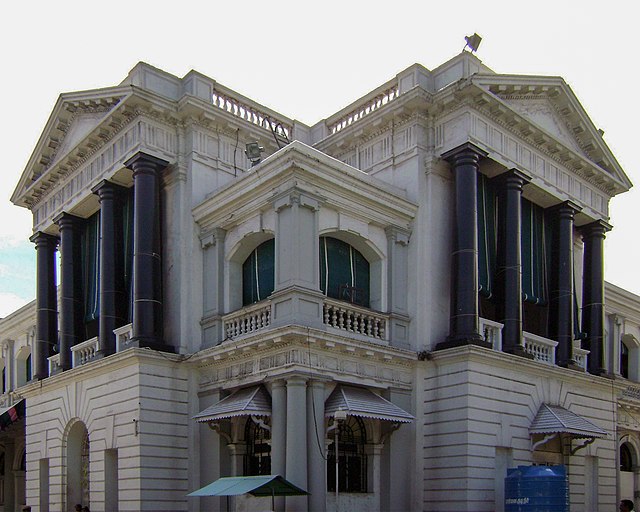Elihu Yale was a British-American colonial administrator and philanthropist. Born in Boston, Massachusetts, Yale only lived in America as a child, spending the rest of his life in England, Wales, and India. He became a clerk for the East India Company at Fort St. George, and eventually rose to the Presidency of the settlement. He was later removed from the post under charges of corruption for self-dealing and required to pay a fine. In 1699 he returned to Britain with a considerable fortune, around £200,000, mostly made by selling diamonds, and spent his time and wealth in philanthropy and art collecting. He is best remembered as the primary benefactor of Yale College, which was named in his honor, following a donation of books, portrait, and textiles under the request of Rev. Cotton Mather, a Harvard graduate. He had no male heir, and no descendants of his have survived past his grandchildren.
Elihu Yale
Plas Grono, Yale family mansion in Wrexham, the estate became Erddig Hall, initially bought by Chancellor David Yale of Chester
The Governor's house of Fort St. George, India
Elihu Yale, metal coin, by engraver John Obrisset
Fort St. George is a fortress at the coastal city of Chennai, India. Founded in 1639, it was the first English fortress in India. The construction of the fort provided the impetus for further settlements and trading activity, in what was originally an uninhabited land. Thus, it is a feasible contention to say that the city evolved around the fortress. The fort currently houses the Tamil Nadu legislative assembly and other official buildings.
Fort St. George, the seat of Government of Tamil Nadu
Plan of Fort St. George made during the French occupation of 1746–1749, with East at the top
An 18th-century coloured engraving of the fort
Corner of Fort St. George showing the spire of St Mary's Church, where in 1753 Robert Clive married Margaret Maskelyne, the younger sister of the Astronomer Royal, Nevil Maskelyne. Photo c. 1905.








